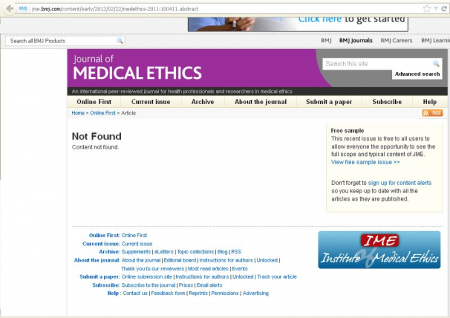Two False Apologies
 Recently there’s been a rash of forced and false – or, at least, less than convincingly sincere apologies making the rounds of the media.
Recently there’s been a rash of forced and false – or, at least, less than convincingly sincere apologies making the rounds of the media.
Somewhat interestingly, these false apologies seem non-partisan or bipartisan in nature. Both Liberals and Conservative have been forced by circumstances to bow to outside pressures and offer what they hope will be acceptable apologies.
Two such false apologies come quickly to mind:
- Conservative media icon and pundit, Rush Limbaugh has been forced to offer an apology for describing Liberal activist, Sandra Fluke as a slut and prostitute after various of his sponsors pulled their advertising in the wake of Liberal outrage over his comments.
- Liberal “bioethicists,” Alberto Giubilini and Francesca Minerva have been forced to offer an apology for advocating the legitimacy of infanticide for any reason or no reason at all in the wake of a broad spectrum of people calling for their deaths.
It’s somewhat interesting that both coerced apologies differed from the normal bordering upon trite, insincere, “I’m sorry if anyone was offended by what I said,” vein.
- Limbaugh claimed he made poor word choices in his attempt to apply a humorous analogy of the situation and went on to imply that the blame, if there was any to be cast, should be laid at the doorstep of the absurdity of “discussing personal sexual recreational activities before members of Congress.”
- Giubilini’s and Minerva’s apology, if one can call it that, seemed to based upon the idea that we normal people, lacking the bioethicists’ special education and ability, should never have been granted access to such material since we couldn’t be expected to understand it or approach it clinically.
Unsurprisingly, Rush Limbaugh’s apology was not considered sincere and was not accepted, nor was that, by and large, from Giubilini and Minerva.
Leaving the question of whether either of these apologies was warranted and, as well, leaving aside the utter lack of believable sincerity in these two disparate attempts at apologizing, it had to be expected by anyone with an iota of sense that they would be rejected. It’s obvious that the vast majority of people would consider these apologies worthless.
Both apologies were given only after people were taking direct action against these people. Hence, the apologies cannot be expected to be considered anything other than an attempt to avoid the natural consequences of their actions – even when they appear to be sincere.
Perhaps, many years ago, people were more attached to the “moral high ground” of forgiving other for the shear sake of forgiving. That was then; this is now, and people have well learned that the wages of mercy are often recidivism when such forgiveness is granted before reprisal has run it course.
Tags: Abortion | Alberto Giubilini | Apologies | Coercion | Ethics & Morality | Forgiveness | Francesca Minerva | Infanticide | Politics | Rush Limbaugh | Sandra Fluke | Sincerity | Society

 Alberto Giubilini
Alberto Giubilini Francesca Minerva
Francesca Minerva


